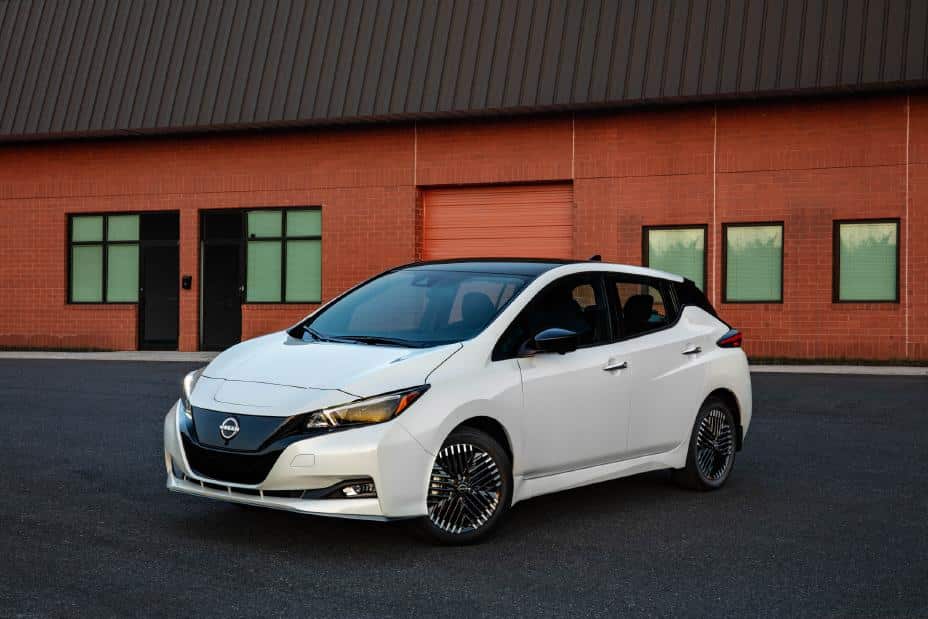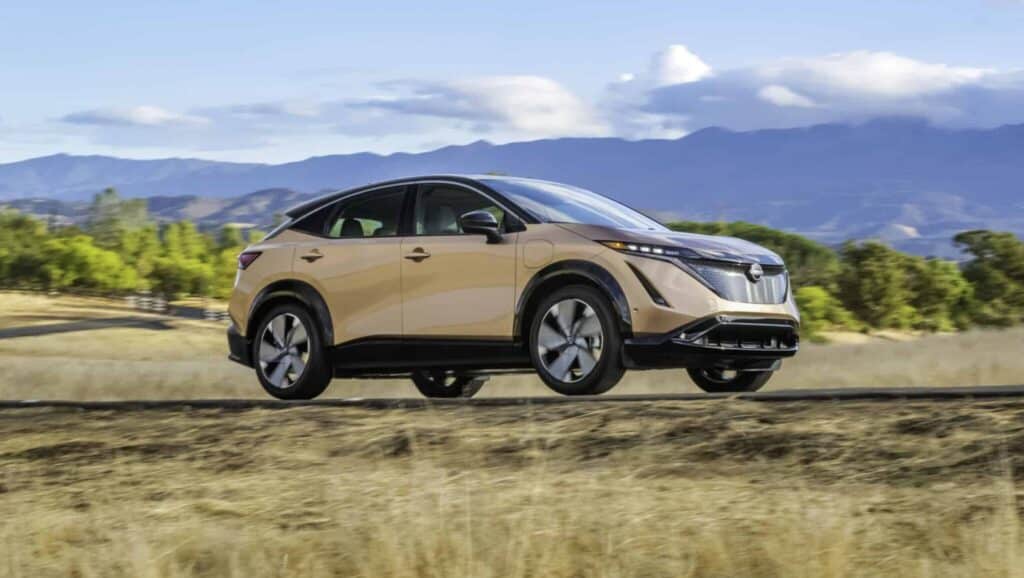Struggling Brand Nissan Enjoys Strong 2024 EV Sales in America
The fourth-quarter EV boom in the U.S. signals a tipping point in the country’s electric vehicle market. As more automakers ramp up production and offer diverse models, consumers are beginning to embrace electric cars at an accelerated pace. Strong and well-respected brands like Ford, GM, Hyundai Group, and others are rapidly closing in on the number one seller spot, driving competition and contributing to a broader EV adoption trend. The rise in EV sales suggests that the U.S. is on the cusp of a more widespread transition to electric vehicles, even as legacy challenges remain.
Nissan is making a solid comeback in the electric vehicle (EV) market, especially in the US, which has been historically a slower adopter of EVs compared to other developed regions. Despite the overall market having a few bumps, Nissan’s growth story during the Q4 US EV boom is quite compelling.
The Nissan LEAF, in particular, is showing a remarkable resurgence, with a 170.4% increase in 4th-quarter sales. This impressive year-over-year growth signals a healthy, renewed appetite for the model. The LEAF’s 2024 total sales of 11,226 units, compared to just 7,152 in 2023, is a significant recovery. The LEAF enjoyed a 57% increase in 2024 versus 2023 as a whole.

The Nissan Ariya, the more premium EV offering from Nissan, also posted healthy growth, albeit more modest than the LEAF. The 30.2% jump in 4th-quarter sales and the 47% increase for the year in total sales further solidifies Nissan’s reinvigorated EV strategy, as 2024 ended with nearly 20,000 Ariyas sold.
90% Drop in Profits in December
Nissan is currently grappling with a profound financial crisis, as the company reported in December a dramatic 90% drop in profits compared to the previous year. One of the main contributing factors to this downturn is the company’s struggle in the face of growing competition, particularly from Chinese electric vehicle (EV) manufacturers, who have become dominant players globally. While Nissan has made efforts to transition to EVs, it has been unable to keep pace with the speed at which companies like BYD, NIO, and XPeng have expanded and innovated in the EV sector.
Nissan’s global sales have taken a hit, particularly in China, where they fell by 14.3%. As the largest EV market in the world, China is crucial to any automaker’s strategy, and Nissan’s inability to thrive there has been a significant blow to its business. With EVs gaining traction worldwide, Nissan is facing an uphill battle as it tries to maintain its position in markets where it once held strong influence. Nissan’s US EV sales have been weak for several years, as competition grows against its aging and small lineup.
In response to the downturn, Nissan has announced a major restructuring plan. The company intends to cut 9,000 jobs globally, a move that highlights the severity of its financial struggles. Alongside the layoffs, Nissan will also reduce its manufacturing output by 20%.

The Honda and Nissan Merger
Nissan’s financial crisis prompted the company to seek help. On December 23, 2024, CNN reported that Honda and Nissan have officially agreed to begin discussions over the next six months regarding a potential merger. If the deal moves forward, it could lead to the formation of the world’s third-largest automaker, positioning the new entity as a significant force in the global automotive market. This move would create a formidable competitor to industry giants such as Toyota and Volkswagen. A crucial element of the deal is the involvement of Mitsubishi, a smaller Japanese automaker that is already closely allied with Nissan.
This merger, if finalized, would be a response to the growing challenges facing automakers worldwide, including the rapid shift toward electric vehicles, increasing competition from Chinese manufacturers, and the need for greater scale to survive in an industry undergoing significant transformation. Combining Honda’s established reputation for quality and innovation with Nissan’s established presence, especially in electric vehicles and global markets, could provide the scale and resources needed to compete with the largest global automakers.
While still in the early stages, the discussions signal a significant shift in the automotive industry, where consolidation among major players might become more common as companies navigate the complexities of future automotive trends.
“I think the environment is there for additional mergers,” said Jeff Schuster, global vice president of automotive research for GlobalData. “I don’t think Honda-Nissan will cause more deals to take place, although it could accelerate them.”
“It gets more challenging to survive and not have economies of scale if everyone else does, especially as you move into new technology,” he said. “When you’re in a highly competitive market, it tends to create partners that might not have happened otherwise.”
On December 23, EVinfo.net published a comprehensive report on the possible merger, and no significant news has broken since then about the merger’s progress. However, Nissan’s recent success in America’s Q4 EV boom comes as welcome news for the struggling brand.

Electric Vehicle Marketing Consultant, Writer and Editor. Publisher EVinfo.net.
Services